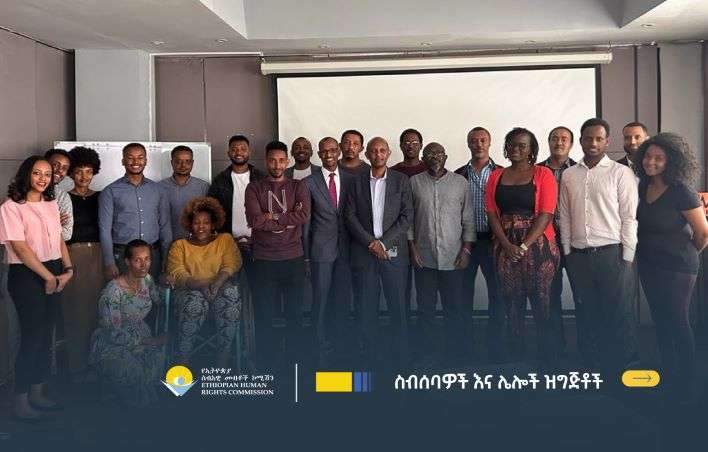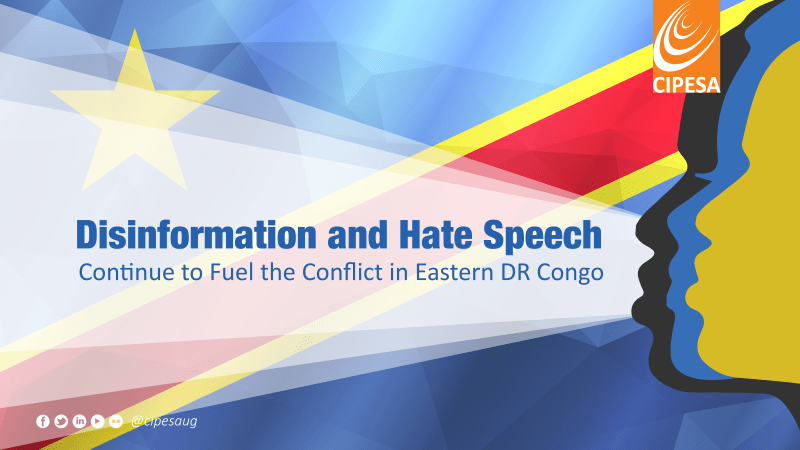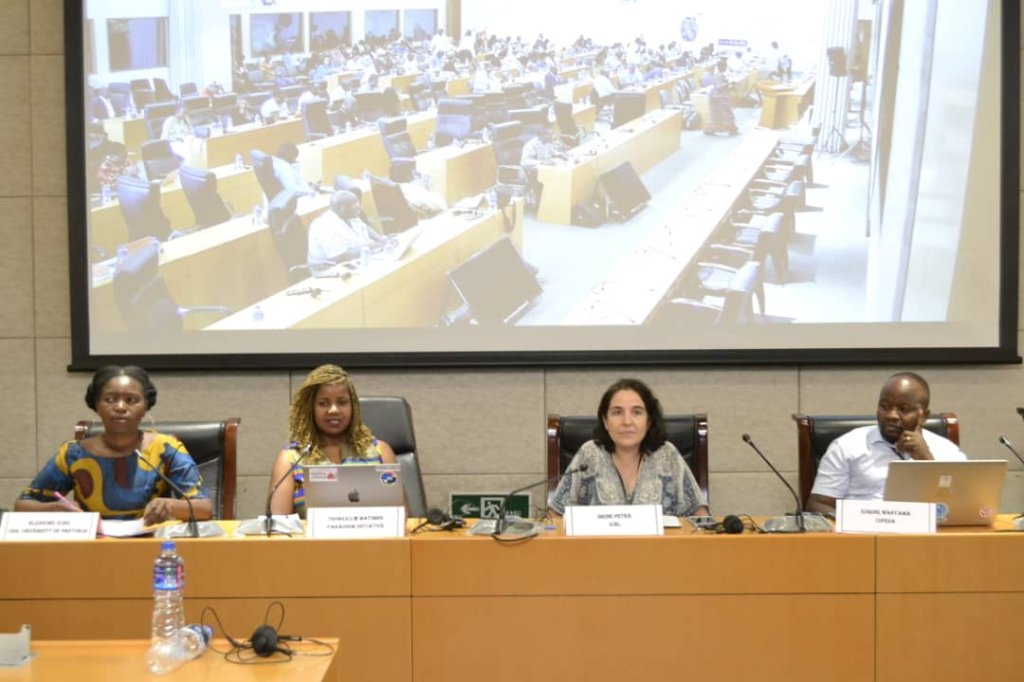By CIPESA Writer |
The Collaboration on International ICT Policy for East and Southern Africa (CIPESA) has conducted a digital rights training for staff of the Ethiopian Human Rights Commission (EHRC) in a programme that benefitted 22 experts from various departments of the statutory entity.
The training was a response to the desire by the commission to build its organisational capacity in understanding and defending digital rights and CIPESA’s vision to grow the ability of African national human rights institutions (NHRIs) to monitor, protect and promote digital freedoms.
Conducted in the Ethiopian capital Addis Ababa on October 11-12, 2023, the programme aimed to build the EHRC staff’s understanding of digital rights issues and the link with traditional rights. Participants went on to brainstorm how the EHRC should strengthen human rights protection in the digital space and through the use of technology.
Dr. Abdi Jibril, the Commissioner for Civil and Political and Socio-Economic Rights at the EHRC, noted that the proliferation of digital technology has contributed positively to human rights protection. It was therefore necessary to maximise the benefits of digital technology and to expand its usage for the promotion and enforcement of human rights.
The importance of growing the capacity of NHRIs was underscored by Line Gamrath Rasmussen, Senior Adviser, Human Rights, Tech and Business at the Danish Institute for Human Rights and CIPESA Executive Director Dr. Wairagala Wakabi. African NHRIs are not always well versed with the opportunities and challenges which technology presents, which creates a need for capacity development and developing partnerships with stakeholders such as civil society.
As legislation governing the technology domain is fast-evolving, NHRIs in many countries are playing catch up. As such, these institutions need to constantly keep updating themselves on new legislation and implications of these laws on human rights in the digital domain. The NHRIs need to enhance their capacity to document, investigate and report on digital rights.
The NHRIs also need to pay specific attention to the vices such as hate speech, disinformation, and technology-facilitated gender-based violence (TF GBV), that are being perpetuated with the aid of technology.
Dr. Daniel Bekele, the Chief Commissioner at EHRC, stated that social media companies and messaging platforms are not doing enough to moderate harmful content in Africa yet in other geographical regions they have invested more resources and efforts in content moderation. He said African countries need to work together in order to build a strong force against the powerful platforms. The official proposed that the African Union (AU), working with relevant governments and other stakeholders, should spearhead the development of regulations which African countries can jointly use in their engagements with the tech giants on issues such as content moderation.
The two-day training discussed the positive and negative effects of digital technology on human rights and how the commission’s work to enforce human rights can be strengthened through the use of digital technology.
Among other topics, the training also addressed the human rights, governance and technology landscape in Sub-Saharan Africa; public and private sector digitalisation and challenges for human rights; the link between online and offline rights; transparency and accountability of the private sector in upholding human rights; and opportunities for NHRIs to advance online rights at national, regional and international levels. It also featured deep dives into key digital rights concerns such as surveillance, online violence against women, disinformation, and network disruptions.
At the end of the training, the EHRC staff identified key actions the commission could integrate in its annual work plans, such as digital rights monitoring, advocacy for enabling laws to be enacted, and developing tools for follow up on implementation of recommendations on digital rights by treaty bodies and the Human Rights Council. Others were collaborations with local and regional actors including media, fact-checkers, civil society organisations, and platforms; working with the police and other national mechanisms to tackle hate speech and disinformation while protecting human rights; and conducting digital literacy.
Trainers in the programme were drawn from CIPESA, the Centre for the Advancement of Rights and Democracy (CARD), the Danish Institute for Human Rights, the Centre for International Private Enterprise (CIPE), the African Centre for Media Excellence (ACME), Inform Africa, and the Kenya National Cohesion and Integration Commission (NCIC).
Meanwhile, after the aforementioned training, CIPESA teamed up with Ethiopian civil society partners to conduct a training on disinformation and hate speech for journalists, bloggers and digital rights activists. Like many African countries, Ethiopia is grappling with a significant and alarming rise in hate speech and disinformation, particularly on social media platforms. This surge in disinformation is undermining social cohesion, promoting conflict, and leading to a concerning number of threats against journalists and human rights defenders.
The proliferation of disinformation is to citizens’ fundamental rights as studies have shown that many Ethiopians feel their right to freedom of expression is compromised. The prevalence of disinformation also means that many Ethiopians lack access to impartial and diverse information.
Disinformation has been directly fueling conflict in several regions of Ethiopia. According to workshop participants and reports, both pro-government and anti-government actors have perpetuated this vice, whose real-world consequences are severe, including the loss of life and large-scale violent events.
Whereas Ethiopia in 2020 enacted legislation to curb hate speech and disinformation, the effectiveness of this law has been called into question. Some critics argue that it has not been effectively implemented and could be used to undermine citizens’ rights.
The training equipped 21 journalists, bloggers and activists with knowledge to navigate this law and with skills to call out and fight disinformation and hate speech. The efforts of the trained journalists, and those which the human rights commission could implement, are expected to boost the fight against online harms and contribute to the advancement of digital rights in Ethiopia.





